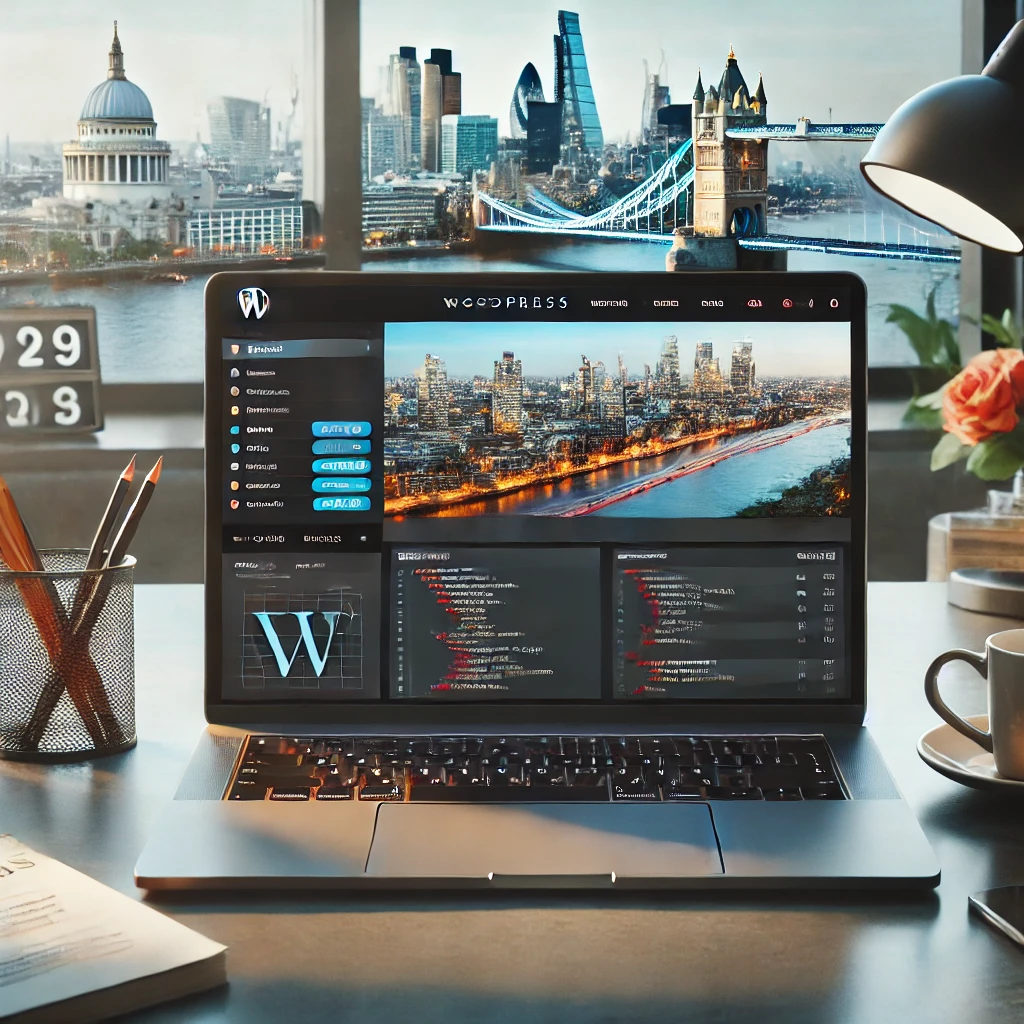Running a business in today’s fast-paced digital landscape comes with its own set of challenges, but one thing is certain—having a robust online presence is essential to success. Whether you’re a start-up in London or a local shop in the UK, leveraging the power of digital tools such as SEO (Search Engine Optimisation) and effective web design can significantly impact your business’s growth. These strategies will not only help you attract more customers but also establish a credible brand presence that can stand the test of time.
In this comprehensive guide, we’ll walk you through fundamental SEO tactics and web design principles tailored for small businesses in the UK, with a special focus on London’s competitive market. By the end of this article, you will be equipped with actionable insights that can drive more traffic to your website, boost customer engagement, and help you achieve long-term success.

1. Know Your Audience: The Foundation of Every Strategy
One of the first and most critical steps in any successful SEO strategy is understanding your audience. Without a clear understanding of who your target market is, any optimisation efforts will be a shot in the dark. In the UK market, and especially in metropolitan areas like London, consumer behaviour can vary greatly based on demographics, location, and preferences.
Conducting Thorough Market Research
Start by conducting detailed research to pinpoint your ideal customer. Utilise tools such as Google Analytics, Facebook Insights, and industry reports to gather data on what your audience is searching for online. Understanding their needs, preferences, and pain points allows you to tailor your SEO strategy to meet them where they are. Create buyer personas that represent your typical customers—this will guide your keyword strategy and the overall tone and messaging of your content.
Long-tail Keywords for Local Relevance
For small businesses, local relevance is often key. Incorporating long-tail keywords that are specific to your location can help target the right audience. For instance, instead of using generic terms like “best café”, try “best café in Shoreditch, London”. These location-based keywords improve your chances of appearing in local search results, which Google increasingly prioritises.

2. Optimise Your Site for Mobile Devices: Tap Into the Mobile-First World
Mobile optimisation is no longer a luxury—it’s a necessity. Over 55% of all web traffic now comes from mobile devices, and this figure is only expected to grow. Google’s mobile-first indexing also means that the search engine predominantly uses the mobile version of the content for ranking purposes. If your website doesn’t perform well on smartphones or tablets, you’re missing out on a massive segment of potential customers.
Why Mobile Optimisation Matters
In cities like London, where fast-paced lifestyles are the norm, users are often searching for products or services on the go. A poorly optimised mobile site can lead to high bounce rates and lost business. Websites that are difficult to navigate on smaller screens or take too long to load will quickly frustrate users, causing them to click away.
Recommended Reading: Top 6 Reasons Why Visitors Leave Your Website Immediately
How to Improve Mobile Responsiveness
To ensure your website is mobile-friendly, implement a responsive web design that automatically adjusts to different screen sizes. Tools like Google’s Mobile-Friendly Test can help you assess how well your site performs on mobile devices. Focus on optimising images, minimising the use of heavy scripts, and ensuring that buttons and navigation are easy to use on a touchscreen.

3. Focus on Page Speed: Every Second Counts
When it comes to website performance, speed matters—a lot. Studies show that 53% of mobile users will abandon a website if it takes longer than 3 seconds to load. For businesses in competitive markets like London, this could mean the difference between gaining or losing a customer.
How Slow Load Times Affect SEO and UX
Not only does a slow website lead to poor user experience (UX), but it also negatively impacts your SEO rankings. Google’s algorithm takes page speed into account when determining search rankings, meaning slow-loading websites are pushed down in the results. For small businesses, this could severely limit your visibility.
Optimising for Speed
To speed up your website, use tools like Google PageSpeed Insights or GTmetrix to identify bottlenecks. Optimise images by compressing them without losing quality, enable browser caching, and consider using a Content Delivery Network (CDN) to serve your content faster to users across different geographic locations. Every second counts, and improving your site’s load time could significantly boost both your SEO rankings and customer satisfaction.

4. Develop a Strong Brand Identity Through Web Design: First Impressions Matter
Your website is the face of your business online, and as the saying goes, first impressions last. In a city as diverse and vibrant as London, standing out from the crowd is crucial. A well-designed website can speak volumes about your brand’s professionalism, trustworthiness, and attention to detail.
Consistency Across Design Elements
When it comes to web design, consistency is key. Ensure that your logo, fonts, and colour schemes are uniform across all pages and marketing materials. A cohesive design reinforces brand identity and helps establish trust with your audience.
User-Centric Design
Your website design should not only look good but also provide an intuitive user experience. Consider your audience’s journey through your website. Are the menus easy to navigate? Are the call-to-action buttons clear and strategically placed? A confusing or cluttered design can discourage users from exploring further, which can harm your conversion rates.
Need to re-design your current website? Speak to an Award-winning, Top-Rated Web Design Agency in London.

5. Leverage Local SEO: Capture London’s Vibrant Local Market
For small businesses, especially those operating in competitive urban areas like London, local SEO is a goldmine. By focusing on local optimisation strategies, you can tap into an audience actively looking for businesses like yours in their immediate vicinity.
Claim and Optimise Your Google My Business Profile
Your Google My Business (GMB) profile plays a pivotal role in local SEO. Make sure your profile is complete, accurate, and up to date. Include essential details like your business name, address, phone number, and website. You can also upload high-quality images and post updates to engage with potential customers.
Build Local Citations
Ensure that your business is listed in local directories such as Yelp, TripAdvisor, or industry-specific sites relevant to the UK. These citations, combined with consistent NAP (Name, Address, Phone) information, will strengthen your local SEO efforts and help you rank higher in local searches.
Encourage Customer Reviews
Positive reviews are another critical element in local SEO. Encourage satisfied customers to leave reviews on your Google My Business profile and other platforms like Trustpilot or Facebook. A high volume of positive reviews not only boosts your SEO but also builds trust with potential clients.

6. Use Engaging Visuals to Improve Dwell Time: Keep Your Audience Hooked
Once potential customers land on your website, keeping them engaged is essential. Dwell time, or the amount of time users spend on your site, is an important metric that search engines consider when ranking your website.
High-Quality Visual Content
Visuals play a huge role in retaining user attention. Use high-quality images and videos that resonate with your brand and audience. Whether it’s showcasing your products or sharing behind-the-scenes footage of your business in action, engaging visuals can make all the difference.
Interactive Elements
Interactive features like quizzes, polls, or even simple animations can also contribute to longer dwell times. They not only provide entertainment but also help users engage more deeply with your content, increasing the likelihood of a conversion.

7. Consistency is Key Across All Platforms: Build a Cohesive Brand Image
From your website to your social media accounts, maintaining consistency in your branding, messaging, and tone is essential. Consumers expect a seamless experience across all touchpoints with your business. Whether a customer interacts with you on Instagram, Facebook, or via email, they should receive the same message and branding.
Reinforcing Brand Identity
Having a consistent brand identity strengthens your credibility and trustworthiness. This can be achieved by using the same colour palette, fonts, and style across all platforms. Your tone of voice should also reflect your brand’s values—whether it’s professional, friendly, or quirky, make sure it’s consistent everywhere.

8. Measure and Adjust: Data-Driven Decision Making
Finally, no SEO or web design strategy is complete without ongoing measurement and adjustment. Monitoring your website’s performance gives you insights into what’s working and what needs improvement.
Tracking Key Metrics
Use tools like Google Analytics to monitor essential metrics such as bounce rate, average session duration, and conversion rates. These insights will inform whether your SEO and web design efforts are paying off.
A/B Testing and Iteration
Don’t be afraid to experiment. A/B testing different elements of your website, from call-to-action buttons to layout changes, can help you identify what resonates most with your audience. The digital landscape is constantly evolving, so staying flexible and responsive to data will keep you ahead of the competition.
Final Thoughts: Achieving Success in London’s Competitive Digital Market
Running a small business in London or any part of the UK presents unique challenges, but with the right SEO strategies and a polished web design, you can make a significant impact. By understanding your audience, optimising for mobile, focusing on page speed, and leveraging local SEO, you’re well on your way to establishing a strong online presence. Keep in mind that consistency, quality visuals, and data-driven adjustments are critical to long-term success.
Start implementing these strategies today, and watch your small business thrive in the digital world. Your customers are out there—make sure they can find you and watch your business thrive online!



